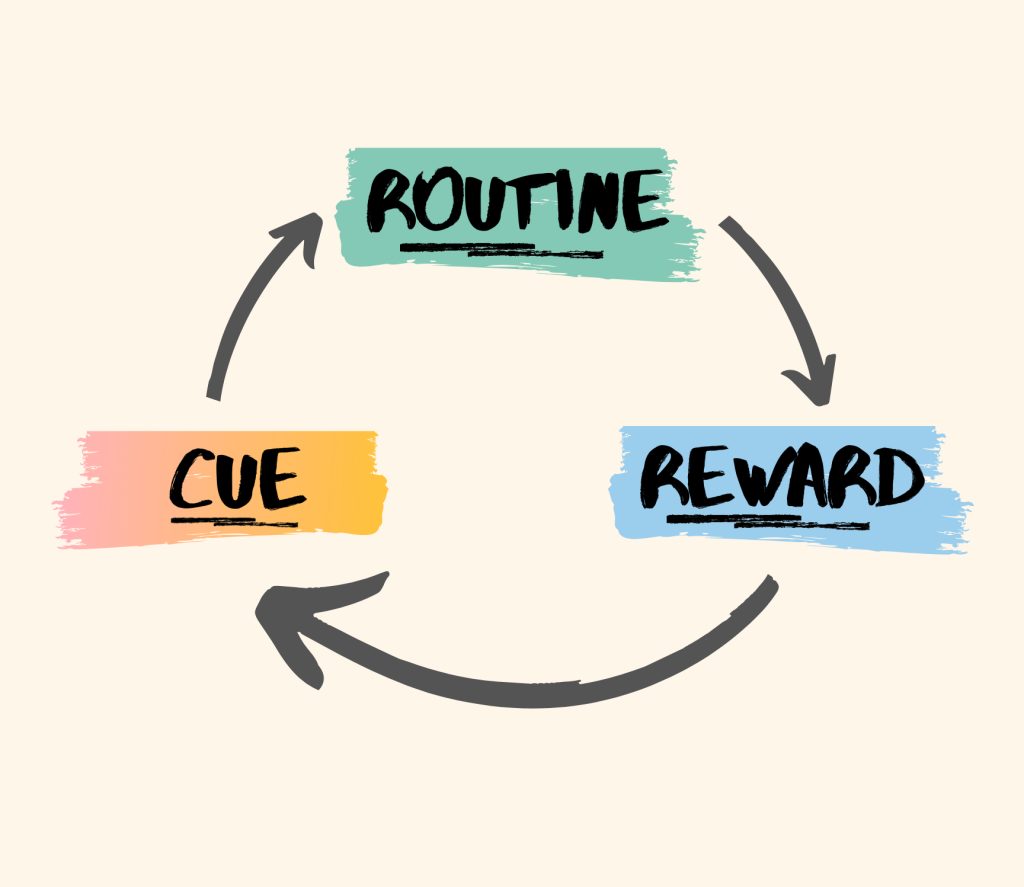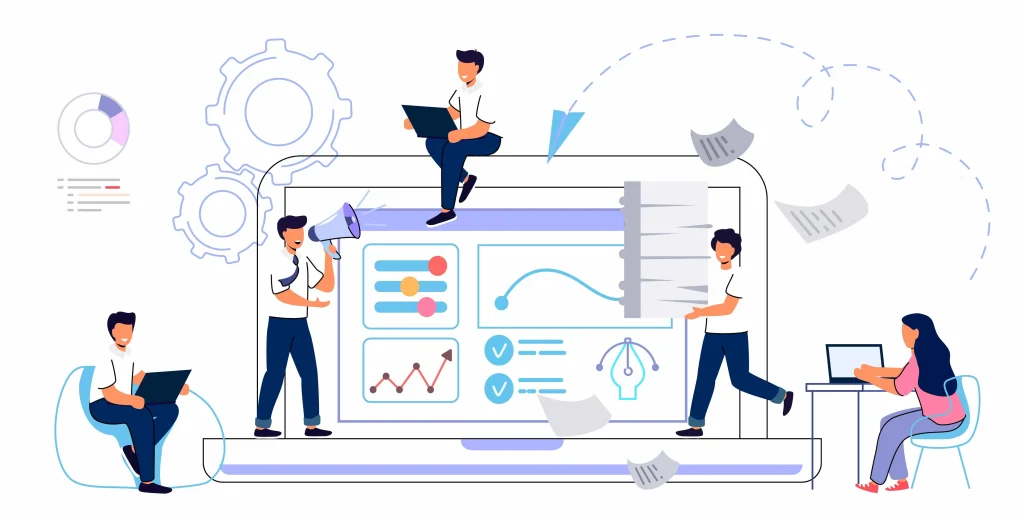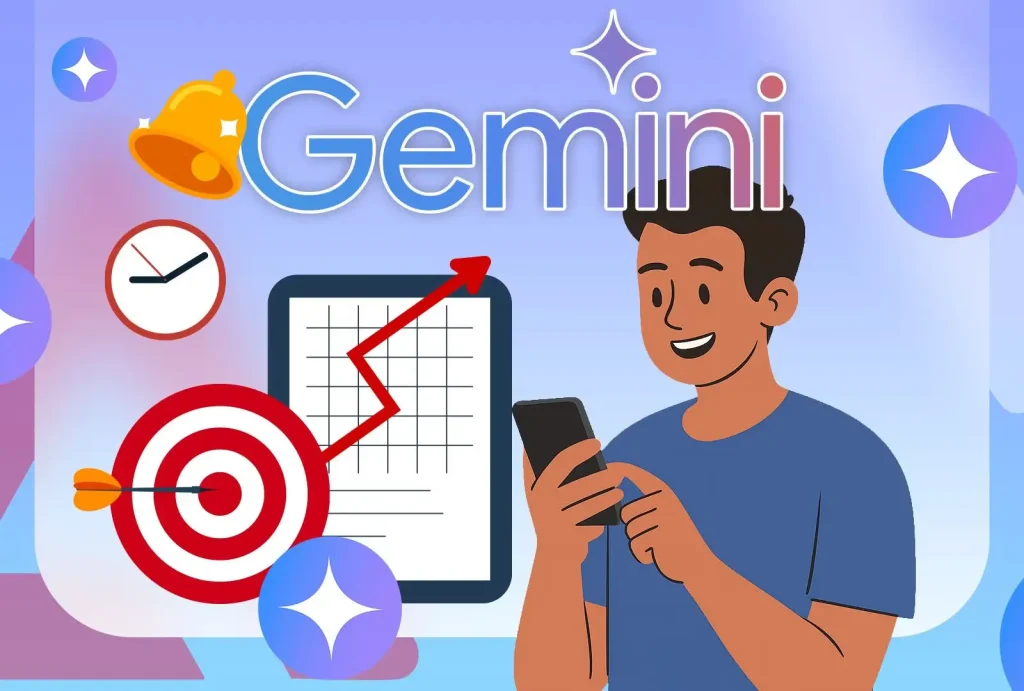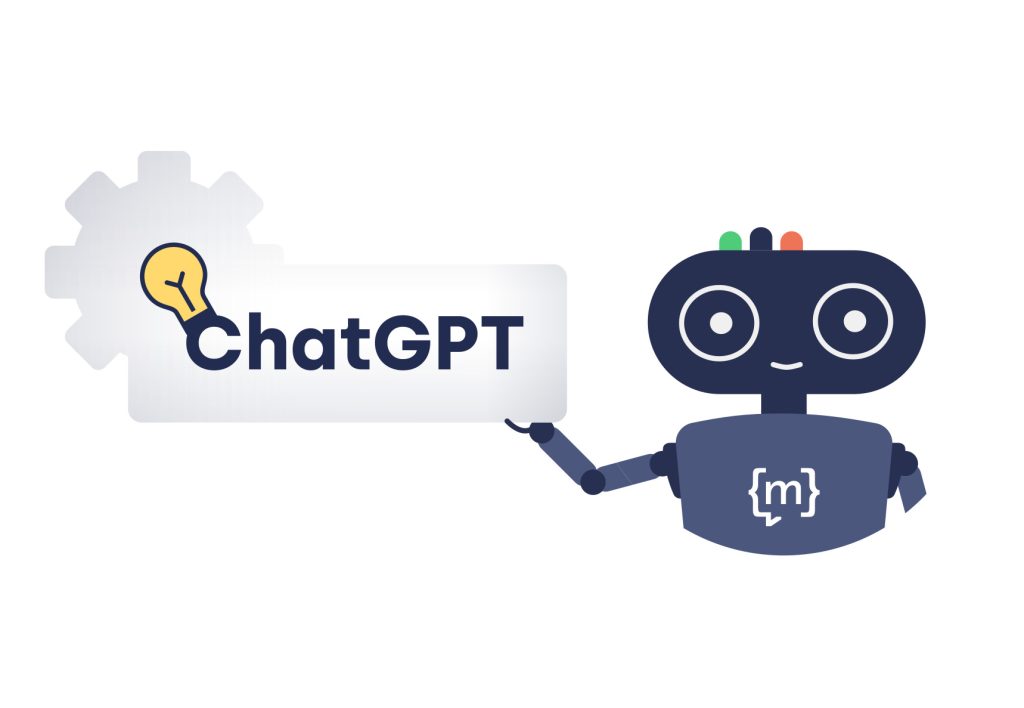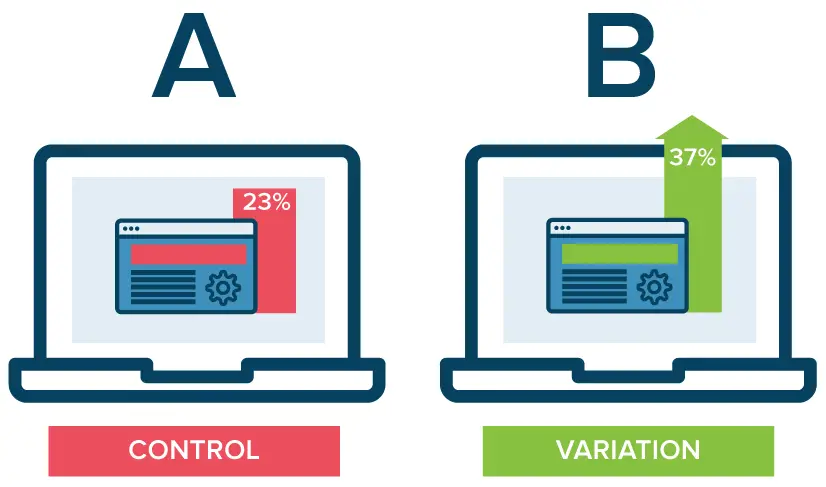Have you ever wondered why some habits seem to run on autopilot? From reaching for your phone first thing in the morning to grabbing a snack when stressed, these behaviors aren’t random—they’re driven by powerful habit loops.
A habit loop is a simple neurological pattern that governs every habit you have. By understanding how habit loops work, you can not only break the bad ones but also build habits that boost your productivity, focus, and overall well-being.
In this guide, we’ll explore what a habit loop is, why it’s so hard to break, and how you can use this knowledge to work smarter. We’ll also share relatable examples and show how tools like Corexta can help you lock in positive patterns.
What Is a Habit Loop?
At its core, a habit loop is a mental shortcut your brain creates to save effort. Instead of deciding each time whether to perform an action, your brain builds a loop—so the habit becomes almost automatic.
The three elements of every habit loop
Every habit loop has three main parts:
Cue: A trigger that tells your brain to start the behavior. It can be internal (like feeling bored) or external (like seeing a notification).
Routine: The action or behavior itself. This could be scrolling social media, writing a report, or grabbing a cup of coffee.
Reward: The payoff that tells your brain this loop is worth remembering. It might be a feeling of relief, a quick shot of dopamine, or a sense of accomplishment.
Together, these elements form a cycle that repeats—often without you even noticing.
Why are habit loops hard to break?
Habit loops are tough to break because your brain loves efficiency. Once a loop is established, your mind will default to it whenever it senses the cue. The reward reinforces the cycle, strengthening the neural pathways that drive the habit.
That’s why simply deciding to “stop procrastinating” rarely works. To change a habit, you need to understand its loop—and then carefully adjust the cue, the routine, or the reward. Done right, you can replace unproductive patterns with ones that actually move you forward.
Examples of Habit Loops in Everyday Life
Habit loops aren’t just abstract psychology—they show up everywhere in daily life. Whether at home or at work, many of your automatic behaviors run on these loops. Let’s break them down.
Personal habit loops
📱 The wake-and-scroll loop
Cue: You wake up and your phone is right there on the nightstand.
Routine: You immediately open social media or email and start scrolling.
Reward: You feel a hit of novelty or connection, even if it’s shallow.
This loop often sets a distracted tone for the entire day. It conditions your brain to seek stimulation first thing, rather than starting the morning intentionally.
🍪 The I-deserve-this snack loop
Cue: You feel stressed, bored, or you’ve completed a small task.
Routine: You wander into the kitchen and grab a snack—often something sugary or salty.
Reward: You get a brief comfort or pleasure that soothes the moment.
This loop is common in the afternoon slump, leading to energy crashes later.
🗣️ The vent-to-avoid loop
Cue: You hit a difficult task or feel uncertain about something.
Routine: Instead of tackling it, you start venting to a friend or colleague.
Reward: You feel validated and momentarily relieved—but the original work remains undone.
Over time, this becomes a subtle form of procrastination that feels social and harmless.
✨ The surface-cleaning loop
Cue: You notice clutter or feel mildly overwhelmed.
Routine: You tidy up surfaces—stack papers, wipe counters—so it looks neat.
Reward: You get a sense of control and quick accomplishment, without addressing deeper organizing tasks.
It’s a loop that can keep you busy without tackling the real sources of disorder.
🧠 The thought-loop trap
Cue: You recall a past mistake or start worrying about the future.
Routine: You replay scenarios or “what ifs” over and over.
Reward: Oddly, your brain thinks this rumination is solving the problem, giving you an illusion of taking action.
This loop often drains mental energy without producing solutions.
🔁 The water-then-scroll loop
Cue: You get up to drink water or take a short break.
Routine: You pick up your phone, intending a quick check, then get pulled into notifications.
Reward: You’re entertained for a moment, but lose track of time and focus.
This loop hides inside a healthy habit (hydration), making it tricky to spot.
Work and productivity habit loops
📅 The meeting buffer loop
Cue: A meeting ends early or gets canceled.
Routine: You treat it like “free time,” fill it by browsing or chatting instead of jumping into meaningful work.
Reward: You enjoy a short mental break, but lose momentum.
This habit loop can fragment your day and leave bigger tasks for rushed end-of-day pushes.
🗂️ The doc-hopping loop
Cue: You open your computer intending to work on one specific task.
Routine: You start clicking through multiple documents, tabs, or emails—looking busy but not making real progress.
Reward: You get a sense of productivity without deep focus.
Over time, this loop eats into your attention span and leaves important work unfinished.
⏳ The deadline panic loop
Cue: You see a deadline approaching on your calendar.
Routine: You ignore it until the pressure gets intense, then pull long hours in a burst of last-minute effort.
Reward: You complete the project and feel a rush of relief (plus maybe pride at “thriving under pressure”).
This loop trains your brain to wait for panic to fuel work, which is exhausting and unsustainable.
🧾 The clarify-later loop
Cue: You start a task but run into something unclear—like missing data or fuzzy instructions.
Routine: Instead of asking questions right away, you put it aside for “later.”
Reward: You avoid an awkward conversation or a moment of uncertainty.
It feels easier in the moment, but it delays progress and often leads to bigger last-minute problems.
How Corexta Helps Reinforce Positive Habit Loops
Building better habits isn’t just about willpower—it’s about designing your environment and tools to support you. That’s where Corexta steps in. It’s more than just a project management platform; it’s a system that helps lock in positive habit loops across your workday.
Make the cue visible and consistent
Corexta’s customizable dashboards, reminders, and notifications keep your priorities front and center. When the cue—like a task deadline or project milestone—is always visible, your brain learns to respond automatically. You’re less likely to forget or get sidetracked because the prompt is clear and consistent.
Make the routine easier to complete
One big reason habits fail is because they’re hard to start. Corexta breaks your work into manageable steps with to-do lists, task checklists, and workflow templates. When the routine is simpler, there’s less friction, making it easy to dive in and keep momentum going.
Make the reward visible and satisfying
Seeing your progress unfold is a huge psychological reward. Corexta gives you that dopamine boost through visual progress bars, completion ticks, and performance summaries. Each small achievement feels satisfying—reinforcing your brain’s desire to repeat the loop.
Reinforcement that evolves with your workflow
As your projects grow, Corexta grows with you. It adapts to new goals, priorities, and workflows, helping your habit loops evolve over time. You’re not stuck with a static system—your positive patterns get stronger and more tailored to how you actually work.
Conclusion
Understanding habit loops is a powerful way to transform your daily life—at home and at work. By breaking down each loop into its cue, routine, and reward, you can start to spot the patterns that hold you back or propel you forward.
With tools like Corexta, you can design your environment to support these loops—making productive habits easier to build and stick with. In the end, it’s not about trying harder, but about working smarter, creating systems that naturally guide you toward your goals.

